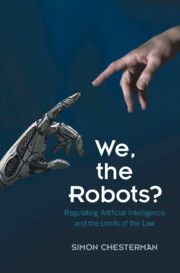1 - Speed
from Part I - Challenges
Published online by Cambridge University Press: 15 July 2021
Summary
Since computers entered the mainstream in the 1960s, the efficiency with which data can be processed has raised regulatory questions. This is well understood with respect to privacy. Data that was notionally public – divorce proceedings, say – had long been protected through the ‘practical obscurity’ of paper records. When such material was available in a single hard copy in a government office, the chances of one’s acquaintances or employer finding it were remote. Yet when it was computerized and made searchable through what ultimately became the Internet, practical obscurity disappeared. Today, high-speed computing poses comparable threats to existing regulatory models in areas from securities regulation to competition law, merely by enabling lawful activities – trading in stocks, or comparing and adjusting prices, say – to be undertaken more quickly than previously conceived possible. Many of these questions are practical rather than conceptual and apply to technologies other than AI. Nevertheless, current approaches to slowing down decision-making – through circuit-breakers to stop trading, for example – will not address all of the problems raised by the speed of AI systems.
Keywords
- Type
- Chapter
- Information
- We, the Robots?Regulating Artificial Intelligence and the Limits of the Law, pp. 15 - 30Publisher: Cambridge University PressPrint publication year: 2021

